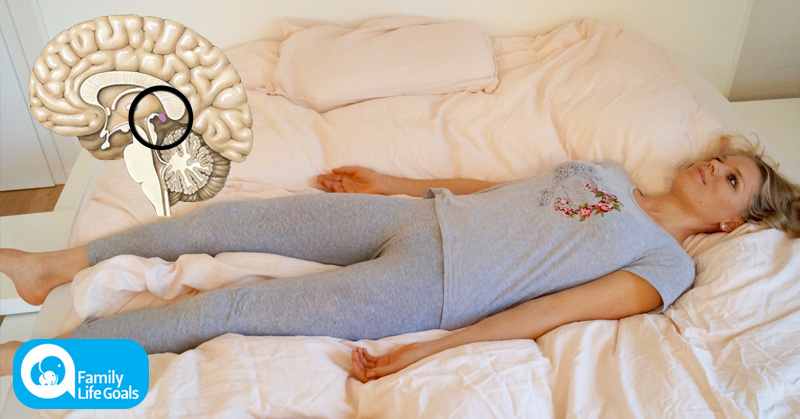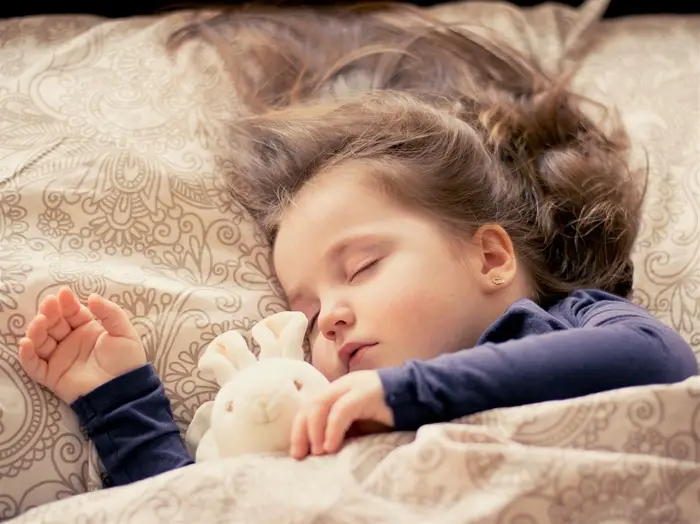According to the American psychological association sleep is the most influential factor in regards to our health and life expectancy. That’s a fact you probably don’t want to know on one of those awful nights when you desperately want to fall asleep! You’ve got an important meeting in the morning, an interview or a flight, and you just can’t drift off.
You lie there staring at the clock thinking ‘if I fall asleep now I’ll get 7 hours sleep’ and then an hour passes and you think ‘if I fall asleep now I’ll get 6 hours sleep.’ Most of us try and trick ourselves to sleep, closing our eyes and hoping that our brain and body finally get the message and shut down for the night.
The question is does this actually work? Does simply lying down with our eyes shut send us to sleep? Or should we be trying something else for the good of our health?
Melatonin
The scientific argument for the benefit of closing your eyes when you’re trying to fall asleep is centered around the ‘sleep hormone’ melatonin. Melatonin is secreted from the pineal gland – which is found in the brain – and is pumped through the body. The secretion rate is regulated by our exposure to light and is an evolutionary reminder to go to sleep when it gets dark, due to our poor night vision.
By closing our eyes we boost the levels of melatonin that courses through our body. During the day or when lights are on, the body can sense through the eyelids that it is not dark enough for a full sleep – which is why when we nap we sleep more lightly during the day. Melatonin levels peak at around 2 am during the deepest part of an ordinary sleep pattern.
By closing our eyes in a dark room when we go to sleep at night you are able to boost your melatonin levels which tires out our body and mind. However, that isn’t the only factor for sleep…
Quiet Wakefulness
If darkness was all we needed for sleep and to trigger melatonin there would be no reason for melatonin to peak at 2 am. Instead while lying in bed with our eyes shut we reach a state called quiet wakefulness.
Quiet wakefulness is the phrase used to describe the state of lying down in a comfortable spot with our eyes shut. In this state your body is freed of its external obligations (eg walking, moving) and our minds are free to wander at will. In doing so your body can reap the physical benefits of sleep without you actually sleeping.
However, as we all know sleep is absolutely essential and new findings suggest that sleep is actually not for the bodies need to recharge whatsoever but specifically for the brain. What this means for us is that the simple act of lying down and shutting your eyes doesn’t influence the level of your brain activity – meaning that you will not simply fall asleep because you’re lying down with your eyes are shut.
In the state of quiet wakefulness your body is able to recover as your muscles and organs rest but it is your brain activity that keeps you awake. On those nights when your brain is still travelling at a mile a minute closing your eyes unfortunately won’t be enough to shut down the voice in your head that keeps shouting – ‘JUST FALL ASLEEP ALREADY!’
Alternatives
So if closing your eyes and just lying there isn’t working when you’re really struggling there are other things you can do:
- Reading a book or listening to music will distract your mind and gently ease you into sleep – make sure you aren’t reading a crime thriller or listening to dance music.
- Writing a to do list for the next day can take some of your anxiety away, allowing your mind to relax about the next day and focus on sleep.
- Doing light yoga exercises will create a oneness with your body and mind meaning when you lie back down, your body and mind will relax together – don’t over-exercise as this will have the opposite effect!
Sources:
https://www.ncbi.nlm.nih.gov/pmc/articles/PMC2887934/?tool=pmcentrez
https://www.ncbi.nlm.nih.gov/pubmed/12957855/
http://www.nhs.uk/Livewell/insomnia/Pages/bedtimeritual.aspx


